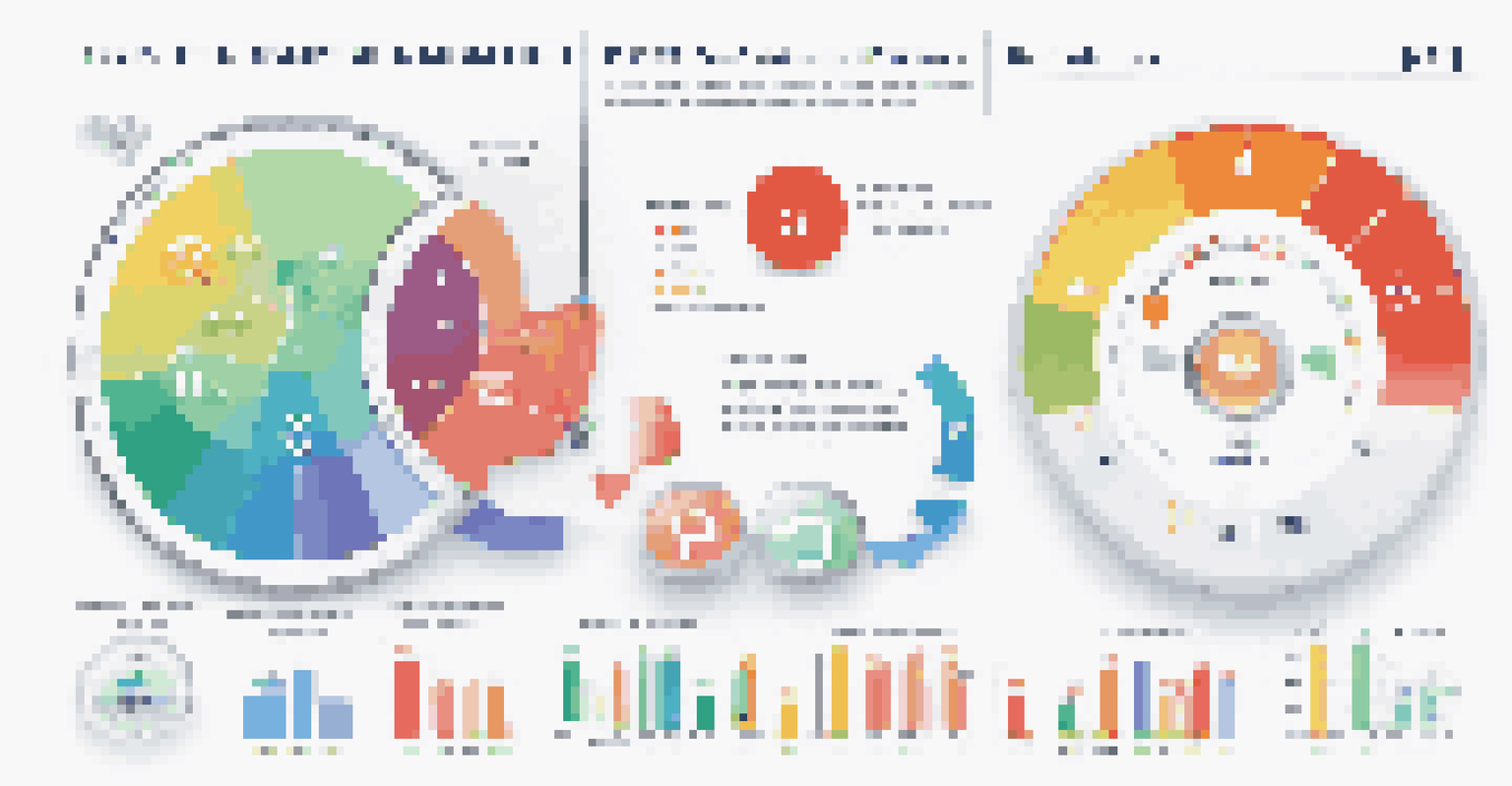Leveraging Data Analytics for Business Process Improvement

Understanding Data Analytics and Its Relevance
Data analytics involves examining raw data to uncover patterns and insights. Businesses are increasingly turning to analytics to make informed decisions and optimize operations. By understanding customer behavior and market trends, companies can tailor their strategies to meet evolving demands.
Without data, you're just another person with an opinion.
For instance, a retail store might analyze purchase data to identify peak shopping hours or popular products. This information can lead to better inventory management and enhanced customer experiences. Ultimately, leveraging data analytics can create a competitive edge in today’s fast-paced market.
Moreover, data analytics is not just for large corporations; small and medium enterprises can also benefit. With the advent of user-friendly tools, businesses of any size can harness the power of data to drive improvements and growth.
Identifying Key Performance Indicators (KPIs)
Key Performance Indicators (KPIs) are critical metrics that help businesses measure success. Identifying the right KPIs is essential for effective data analysis and process improvement. For example, a manufacturing company might track production efficiency or defect rates as KPIs.

Choosing the right KPIs allows organizations to focus their efforts on what truly matters. It’s like having a roadmap; without it, you might wander aimlessly. When KPIs align with business goals, they create a clear pathway for improvement and growth.
Data Analytics Drives Business Success
By uncovering patterns in data, businesses can enhance decision-making and optimize their operations.
Additionally, regularly reviewing and adjusting KPIs ensures they remain relevant as the business evolves. This flexibility allows companies to adapt to new challenges and opportunities, fostering a culture of continuous improvement.
Collecting and Analyzing Data Effectively
Collecting data is the first step, but analyzing it effectively is where the magic happens. Businesses should utilize various data sources, including customer feedback, sales figures, and operational metrics, to gain a comprehensive view. Modern analytics tools can help automate data collection, making the process more efficient.
In God we trust; all others bring data.
Once collected, the data should be analyzed to identify trends and anomalies. For instance, if a restaurant notices a drop in customer visits during a certain time, they can dig deeper to uncover the reasons behind it. This insight can lead to changes in marketing strategies or menu offerings.
Moreover, visualizing data through charts and dashboards can make complex information more digestible. When teams can easily interpret the data, they are better equipped to make informed decisions that drive process improvements.
Implementing Data-Driven Strategies
With insights in hand, it’s time to implement data-driven strategies. This means translating analytical findings into actionable plans that can enhance business processes. For example, if data reveals that customer service response times are slow, a business might invest in training or technology to improve efficiency.
Moreover, involving team members in the implementation process can foster buy-in and collaboration. When employees understand the ‘why’ behind changes, they are more likely to support new initiatives. This collective effort can lead to more successful outcomes.
KPIs Guide Effective Improvements
Identifying the right Key Performance Indicators helps organizations focus on what truly matters for growth.
Additionally, setting measurable goals during implementation allows businesses to track progress over time. Regular check-ins and adjustments ensure that strategies remain effective and aligned with overall business objectives.
Monitoring and Evaluating Progress
Monitoring progress is crucial to ensure that implemented strategies are working. By continuously tracking KPIs and other relevant metrics, businesses can evaluate the impact of their changes. This ongoing assessment helps identify areas that are excelling and those that may need further attention.
For instance, if a company sees significant improvements in customer satisfaction scores, it can take pride in its efforts. However, if certain areas fall short, it’s essential to analyze why and make necessary adjustments. This iterative approach cultivates a mindset of continuous improvement.
Furthermore, sharing progress with the entire team encourages accountability and transparency. When everyone is aware of how their efforts contribute to overall success, it can boost morale and motivation.
Leveraging Technology for Better Insights
Technology plays a pivotal role in enhancing data analytics capabilities. From advanced software to machine learning algorithms, businesses can leverage these tools to gain deeper insights into their operations. For example, predictive analytics can forecast future trends based on historical data, helping organizations stay ahead of the curve.
Additionally, cloud-based solutions allow for real-time data access and collaboration among team members, regardless of location. This flexibility is particularly beneficial for remote teams, enabling them to make decisions based on the latest information.
Fostering a Data-Driven Culture
Encouraging data literacy among employees promotes innovation and helps companies adapt to market changes.
Moreover, investing in training for staff on these technologies can unlock even greater potential. When employees are equipped with the right skills, they can utilize data analytics tools more effectively, driving further improvements in business processes.
Fostering a Data-Driven Culture
Creating a data-driven culture is essential for long-term success. This means encouraging employees at all levels to embrace data in their decision-making processes. When everyone understands the value of data, it becomes an integral part of the company’s DNA.
For instance, regular training sessions and workshops can help staff develop their data literacy skills. This investment in employee development pays off by fostering a more informed workforce that can leverage insights for better outcomes.

Ultimately, a data-driven culture promotes innovation and agility. Companies that prioritize data are more likely to adapt quickly to changes in the market, ensuring they remain competitive and responsive to customer needs.